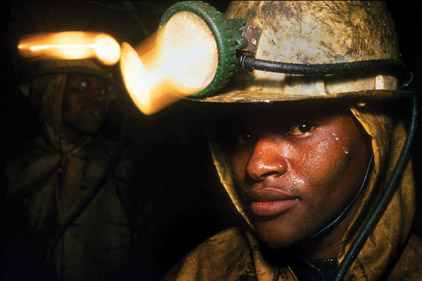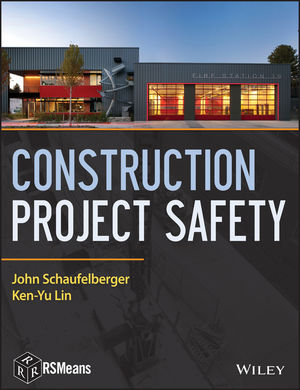I was humbled to train dedicated people who would go to the mines to use processes and principles of behavioral safety to achieve a culture of Actively Caring. I had Zulus, Afrikaans, British descendants, Zimbabweans, and others of the great African diversity in the room — executives through construction laborers.
While we were training, I was pulled aside during a break. “You must understand… we are not a caring culture.” I guess I refused to believe this. Yes, in their recent history they treated each other with less than human respect. Yes, there was vigilante violence on all sides during the chaotic times as Apartheid fell.
But in this room was an ex-police officer who had to enforce Apartheid sitting next to a man named Artwell who had been a part of the political resistance. Artwell had been hunted, beaten, and left for dead by vigilantes — many of whom were ex-police. There was a younger generation, too young to remember, working for a promise of a middle class life denied their parents. They sat next to Afrikaans farmers, engineers, managers, and safety professionals. They all spoke at least six languages, some 11, because they had to in this diverse land.
In this room was the promise of Actively Caring in Africa.
Practice what you preach
By the time the next weekend came, my wife and I were ready for a break. One of the company executives offered to take us to the Kruger reserve for a photo safari. We drove to their house perched atop a hill in the town of Nelspruit. Like all other dwellings, a 12-foot fence with barbed wire surrounded it.
We all dressed in our finest and went to their favorite restaurant where the owner met us at the door and had prepared a special table in the wine cellar. On our drive back to his home that night, my wife and I sat in the back seat of their Mercedes. We were engaged in pleasant conversation when the car dropped slightly on my side then jolted with a loud “BAM”. The executive driving the car let out a grunt of disgust and started talking about how South Africa was a “first world country with a third world underbelly” and the huge pothole that we had just hit was a good example.
I was commiserating with their plight when my wife said, “We need to do something about that pothole — someone else will hit it!
“You just spent the whole week talking about Actively Caring and you won’t do something?” she asked.
The executive’s wife jumped in with her formal British accent: “Yes, we must help, we absolutely must.”
His wife instructed him to pull over. “We must take those downed branches and make a barrier in front of the hole so oncoming traffic will see it and avoid it.”
I opened the door, gathered a number of large branches and held them outside the open window as we drove back to the hole.
I was embarrassed, but I knew she was right. I had not practiced what I preached… didn’t walk the talk.
Soon enough, I experienced the natural reinforcement of doing something good. We put the branches in front of the hole with broad smiles and hugs with the knowledge that we had helped others avoid the hazard.
It starts with us
This incident reminded me of a corporate safety conference where a CEO spoke before I delivered my keynote. Instead of the usual “Safety First” message, he began by telling us he was a bit surprised and concerned. Evidently there was a hotel employee watering plants at the top of the escalator we all took to get to the ballroom. The plants were on a landing coming off the second floor balcony and he had stepped out on the landing, holding a railing, reaching to pour out the water on the Ivy.
“Every one of us rode this escalator within six feet of this gentleman.” He pointed to the room of 300. “None of us said anything about the risk he was taking … and I am speaking to our company’s best safety professionals.”
“I passed him too…looked right at him and thought ‘he could fall,’ but I continued on to this room.” The CEO paused, “How can we expect our employees to look out for each other if we’re not doing it?”
“You should see this…”
We continued our training at one of the client’s bigger construction sites. After the mine construction tour, I asked the executive to take me to see their mining camp. He complied, adding: “You should see this.”
The mining camp was like many others I’ve seen in my travels to remote mining sites. There was the normal pre-fabricated units set in rows with service facilities, some recreation, and a mess hall; all surrounded by a tall fence. But next to this camp was a reminder that this site was so much more than a badly needed job — and that safety was so much more than a set of rules.
A shantytown had rose up. It was twice the size of the camp and full of poverty and filth. “The camp had provided an economy of sorts,” the executive explained. “We get these all over Africa because those working in the construction sites get free clothing and food that they distribute to their relatives and friends through the fence.”
I was touched deeply by this but was also hopeful thinking back to the training room filled with promise, people like Artwell.
The company hosting us employs in rural areas throughout Africa to build mining facilities. If we teach safe practices and Actively Caring in this company, in this industry — the largest in Africa — then the reach into these people, their families, and communities would be profound.
Change the world, it starts with me…. With you… wherever you’re at.
“As I have said, the first thing is to be honest with yourself. You can never have an impact on society if you have not changed yourself...” — Nelson Mandela






